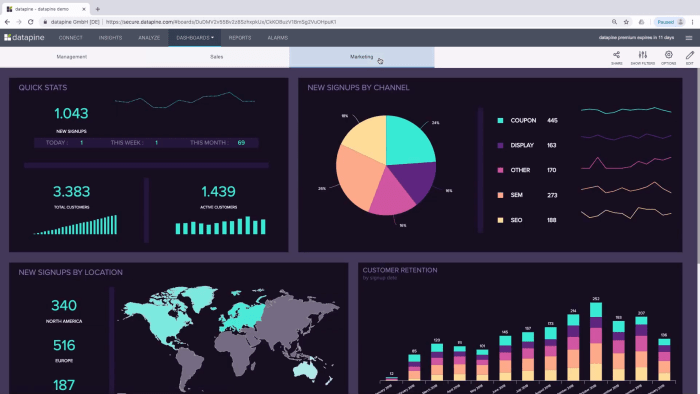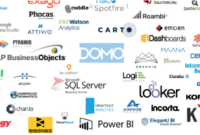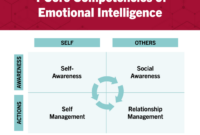In today’s data-driven world, business intelligence software list has become an essential tool for organizations looking to make informed decisions and gain a competitive edge. This comprehensive guide will provide you with everything you need to know about business intelligence software, from its key features and capabilities to the leading vendors and selection criteria.
1. Business Intelligence Software Market Overview
Business intelligence (BI) software empowers businesses to transform raw data into actionable insights, enabling informed decision-making. The global BI software market is experiencing significant growth, driven by the increasing adoption of data analytics and the need for real-time insights.
Key market drivers include the proliferation of big data, the rise of cloud computing, and the growing demand for self-service BI tools. However, challenges such as data integration and security concerns pose obstacles to market expansion.
If you’re looking for a list of the best business intelligence software, you’ve come to the right place. We’ve compiled a comprehensive list of the top BI tools on the market, so you can find the perfect one for your needs.
But before you start using any BI software, it’s important to understand the basics of business intelligence and how to become a business intelligence analyst. Once you have a solid foundation in BI, you’ll be able to get the most out of your software and make better decisions for your business.
Here’s a guide on how to get started as a business intelligence analyst. Once you’ve mastered the basics, you can start exploring the different business intelligence software options available.
2. Key Features and Capabilities of BI Software

BI software offers a comprehensive suite of features to support data-driven decision-making. Essential capabilities include:
- Data integration: Connecting data from multiple sources into a single, cohesive view.
- Data visualization: Creating interactive dashboards, charts, and graphs to visualize complex data.
- Reporting: Generating customizable reports that provide insights into key performance indicators (KPIs).
- Analytics: Performing statistical analysis and predictive modeling to identify trends and patterns.
By leveraging these capabilities, BI software empowers businesses to uncover hidden insights, optimize operations, and gain a competitive advantage.
3. Types of BI Software
BI software can be categorized based on deployment models:
- On-premise BI: Installed and managed on the organization’s own servers, providing greater control and security.
- Cloud BI: Hosted on a third-party cloud platform, offering scalability and flexibility with lower upfront costs.
- Hybrid BI: A combination of on-premise and cloud deployment, providing a balance of control and cost-effectiveness.
Additionally, BI software can be classified by functionality:
- Self-service BI: Empowering business users to access and analyze data without relying on IT support.
- Embedded BI: Integrating BI capabilities within other business applications, such as CRM or ERP systems.
- Real-time BI: Providing real-time data analysis and insights, enabling businesses to respond quickly to changing market conditions.
4. Leading Business Intelligence Software Vendors
| Vendor | Product | Key Features | Pricing |
|---|---|---|---|
| Microsoft | Power BI | Interactive data visualization, powerful analytics, self-service BI capabilities | Free (limited features); Premium: $9.99/user/month; Premium Per Capacity: $4,995/month |
| Tableau | Tableau Desktop | Intuitive data visualization, drag-and-drop interface, advanced analytics | $70/user/month |
| Qlik | Qlik Sense | Associative data model, in-memory analytics, guided analytics | $30/user/month |
| SAP | SAP BusinessObjects BI Suite | Comprehensive BI suite, real-time data analysis, predictive analytics | Contact vendor for pricing |
Each vendor offers unique strengths and weaknesses. Microsoft Power BI excels in integration with Microsoft products, while Tableau is known for its user-friendly interface. Qlik Sense offers advanced analytics capabilities, and SAP BusinessObjects BI Suite provides a comprehensive solution for enterprise-level organizations.
Business intelligence software empowers businesses with data-driven insights. To harness its full potential, organizations require skilled professionals like business intelligence developers. Explore our comprehensive business intelligence developer job description to understand the responsibilities and qualifications required for this critical role.
This knowledge will guide your search for the right software to meet your business intelligence needs, ensuring you leverage data effectively for strategic decision-making.
5. Selection Criteria for Business Intelligence Software
Choosing the right BI software is crucial for successful data-driven decision-making. Key selection criteria include:
- Data integration capabilities: Ensure the software can seamlessly connect to your existing data sources.
- Data visualization and reporting: Evaluate the software’s ability to present data in clear and actionable formats.
- Analytics capabilities: Consider the level of analytics required, including statistical analysis, predictive modeling, and forecasting.
- Deployment model: Determine whether on-premise, cloud, or hybrid deployment best suits your needs.
- User interface and usability: Choose software that is easy to use for both technical and non-technical users.
Follow a step-by-step selection process that involves defining requirements, evaluating vendors, and conducting a proof of concept to ensure the chosen software meets your specific needs.
6. Implementation and Best Practices

Successful BI software implementation requires careful planning and execution. Best practices include:
- Data preparation: Ensure data is clean, accurate, and consistent before loading it into the BI system.
- User training: Provide comprehensive training to empower users to effectively utilize the software.
- Ongoing maintenance: Establish a regular schedule for software updates, data refresh, and performance monitoring.
By following these best practices, organizations can maximize the value of their BI investment and drive data-driven decision-making throughout the enterprise.
7. Future Trends in Business Intelligence Software: Business Intelligence Software List
The future of BI software is marked by emerging trends and innovations:
- Artificial intelligence (AI) and machine learning (ML): AI-powered BI tools will automate data analysis, identify patterns, and provide predictive insights.
- Cloud computing: Cloud-based BI solutions will become increasingly prevalent, offering scalability, flexibility, and reduced costs.
- User-friendliness and accessibility: BI software will become more user-friendly and accessible to non-technical users, enabling broader adoption.
These trends will shape the future of BI software, making it an indispensable tool for businesses seeking to leverage data for competitive advantage.
Last Recap
By understanding the benefits and capabilities of business intelligence software, you can make informed decisions about which solution is right for your organization. With the right BI software in place, you can unlock the power of your data and drive your business to success.
FAQ
What is business intelligence software?
To truly leverage the power of business intelligence software, consider enrolling in a business intelligence bootcamp. These intensive programs provide hands-on training, equipping you with the skills to navigate the complexities of business intelligence software.
By mastering data analysis, visualization, and reporting techniques, you’ll gain a competitive edge in leveraging data-driven insights for strategic decision-making.
Business intelligence software is a set of tools and technologies that helps organizations collect, analyze, and visualize data to gain insights and make informed decisions.
What are the benefits of using business intelligence software?
Business intelligence software can provide organizations with a number of benefits, including improved decision-making, increased operational efficiency, and reduced costs.
What are the key features of business intelligence software?
Key features of business intelligence software include data integration, data visualization, reporting, and analytics.




